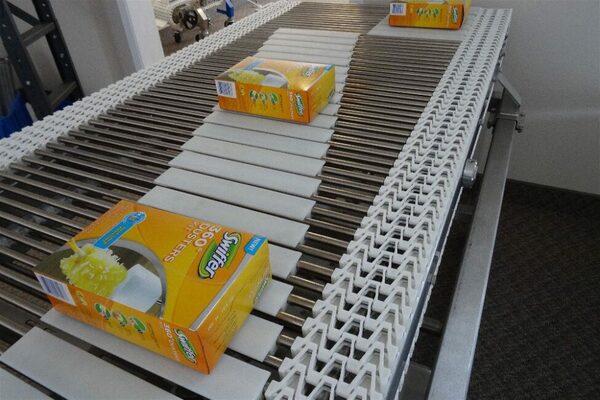Choosing the right conveyor belt design is crucial for maintaining high standards of hygiene and efficiency in food processing. A well-designed conveyor streamlines production minimizes contamination risks, and ensures product quality. From handling raw ingredients to packaging finished goods, the selection of materials and design features play a vital role. Leveraging advanced conveyor systems can significantly enhance operational performance, making them indispensable in the food industry.
Significance of Selecting the Right Conveyors
Selecting the right conveyors is crucial for food conveyor manufacturers to ensure efficient production processes. A well-chosen system can boost production efficiency, minimize contamination risks, and maintain consistent product quality. Food conveyor belts are essential in moving materials through different stages of production, from handling raw ingredients to final packaging. With the right conveyor, food processors can achieve higher hygiene and operational efficiency standards, making it a key component in the food industry.
Essential Considerations for Conveyor Belt Design
Designing a conveyor belt for food processing involves several critical factors. The material used must be durable, easy to clean, and compliant with food safety regulations, with common choices being nylon, rubber, and polyester. Sanitation is crucial, so design features should allow easy cleaning and maintenance to prevent contamination. Efficiency is also vital, as the system should optimize production flow, minimizing downtime and maximizing throughput. Additionally, versatility is important, enabling the conveyor to handle various products and processes, including cooking, freezing, and packaging. Food conveyor belt systems must meet these criteria to ensure optimal performance.
Types of Conveyors
Different conveyors are best suited for various food processing needs. Here are a few options:
- Belt Conveyors: The most common type used in food processing, known for their simplicity and versatility. Ideal for transporting raw materials, processed goods, and packaged products.
- Screw Conveyors: Effective for handling bulk materials, particularly semi-solid materials such as dough or paste.
- Vibratory Conveyors: Perfect for applications requiring gentle handling, such as sorting, screening, and cooling food products.
These systems are integral to ensuring efficient and hygienic food processing operations. A well-designed screw conveyor and other types contribute significantly to maintaining the quality and safety of food products.
Critical Design Elements for Food Safety
Ensuring food safety through proper design is paramount in food processing. Key design elements include:
- Seamless Surfaces: Minimize seams and joints to prevent bacteria accumulation.
- Accessibility: Design the system so all conveyor parts are easily accessible for cleaning and maintenance.
- Drainage: Incorporate adequate drainage to avoid water accumulation and mold growth.
- Non-Toxic Materials: Use materials that are corrosion-resistant and do not react with food products.
These considerations are essential for maintaining high hygiene standards and ensuring that the food conveyor belt systems effectively support food safety protocols.
Advancing Efficiency with Optimal Conveyor Designs
Modern food conveyors incorporate innovative features to streamline operations. Automated monitoring systems detect wear and tear, ensuring timely maintenance and reducing downtime. Modular designs allow for easy upgrades and customization, adapting to changing production needs. Optimal conveyor belt designs are crucial for enhancing efficiency, ensuring food safety, and maintaining product quality in the food industry. By focusing on factors such as material, sanitation, and efficiency and selecting the appropriate conveyor system, food conveyor manufacturers provide tailored solutions to meet specific food processor needs.




